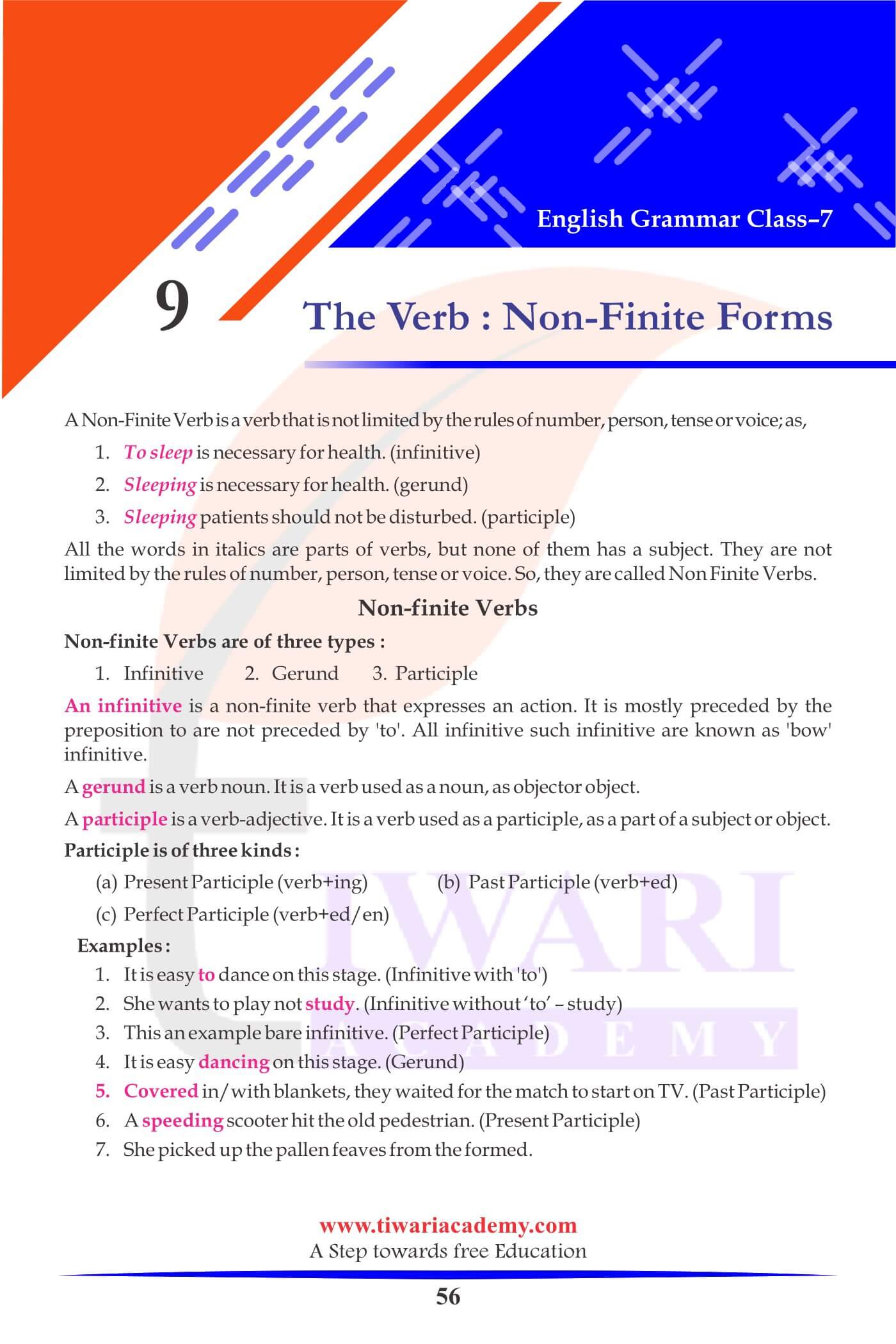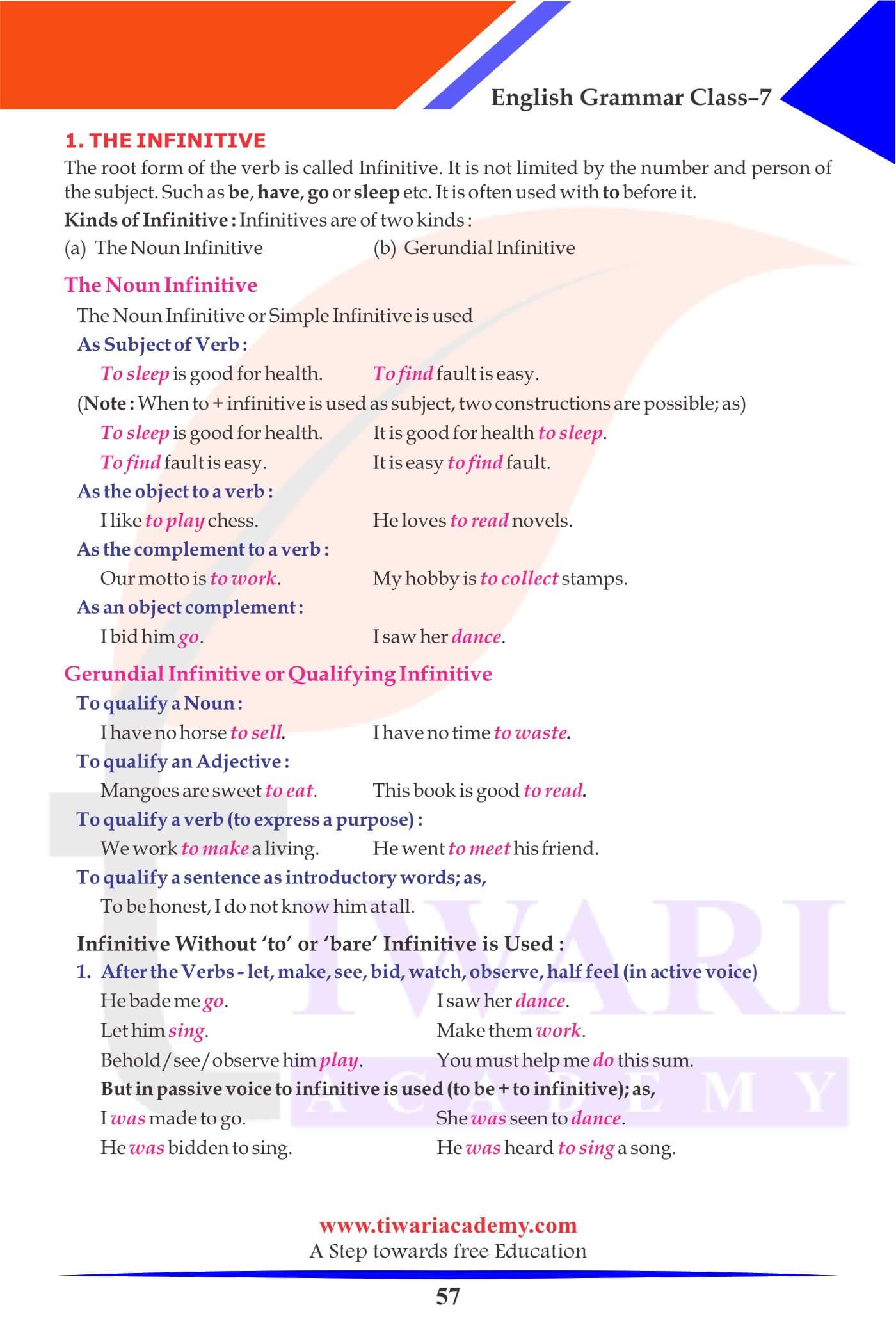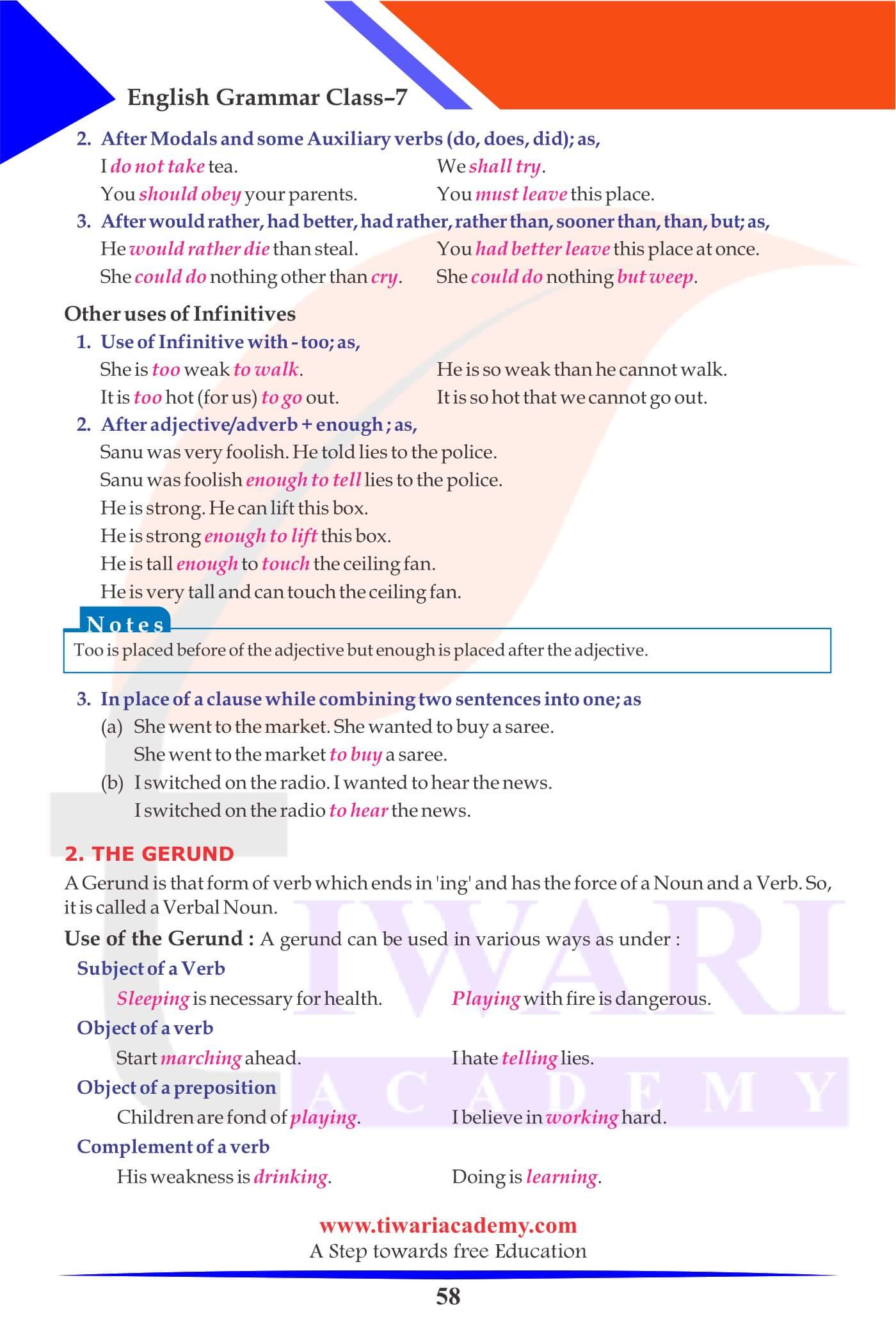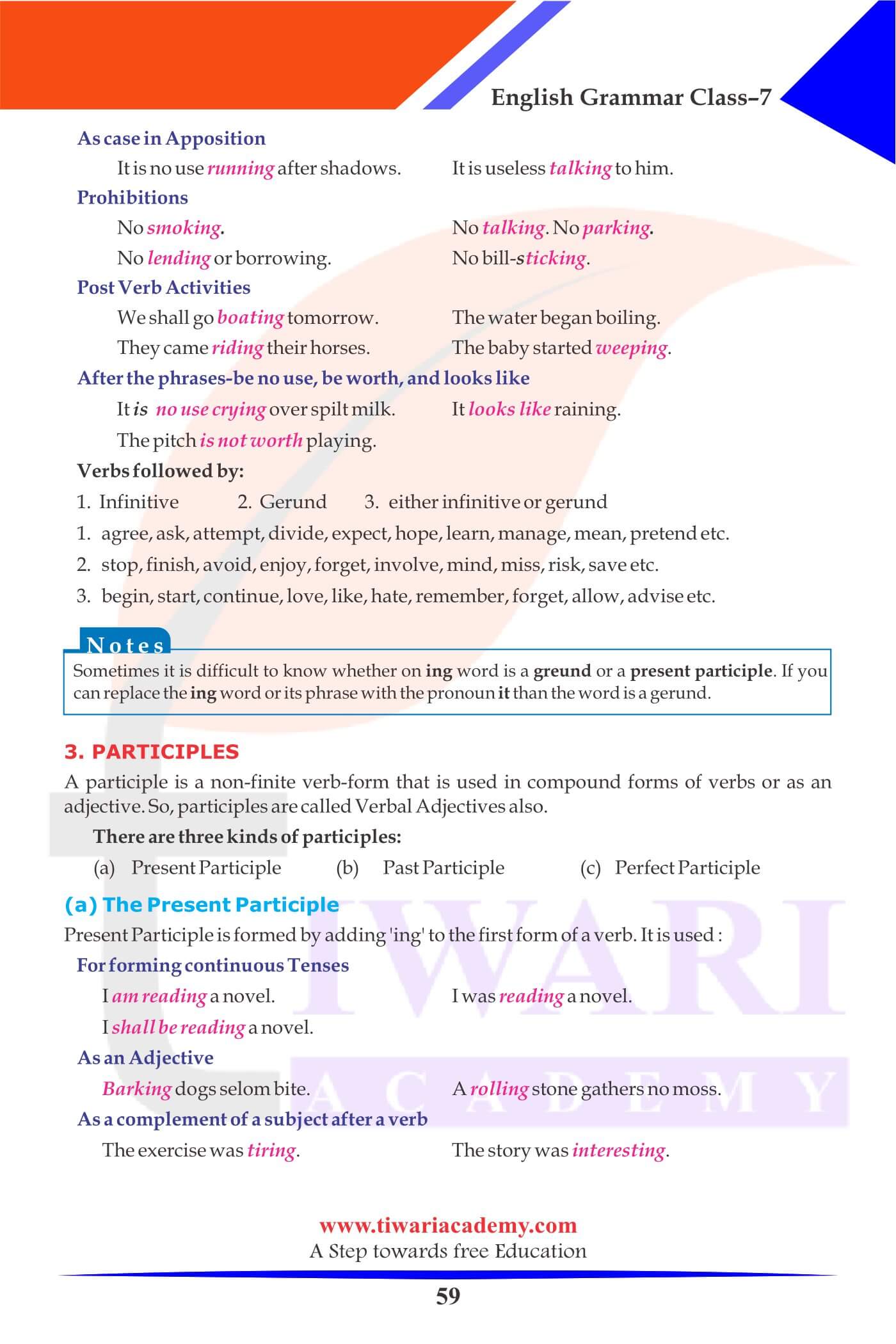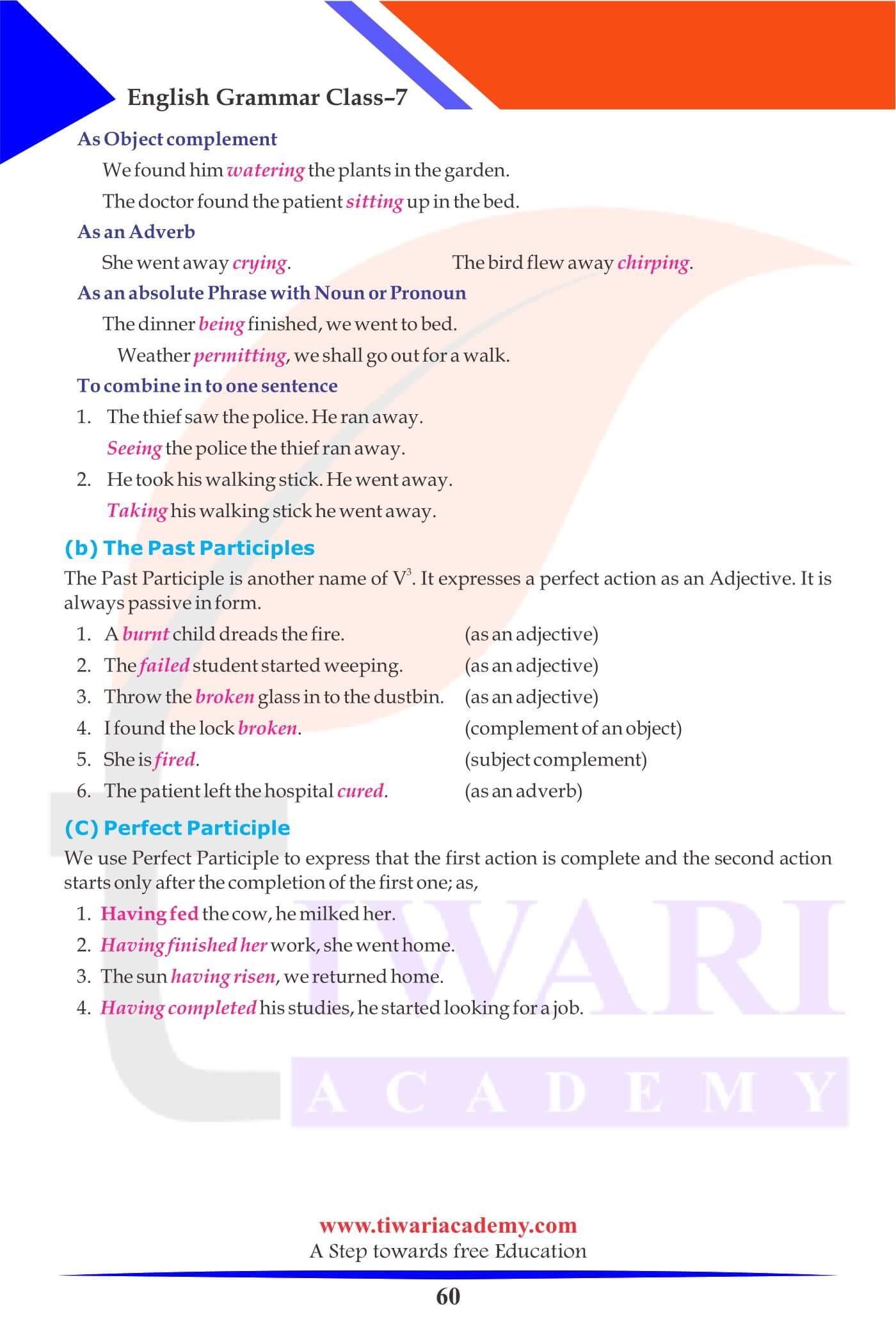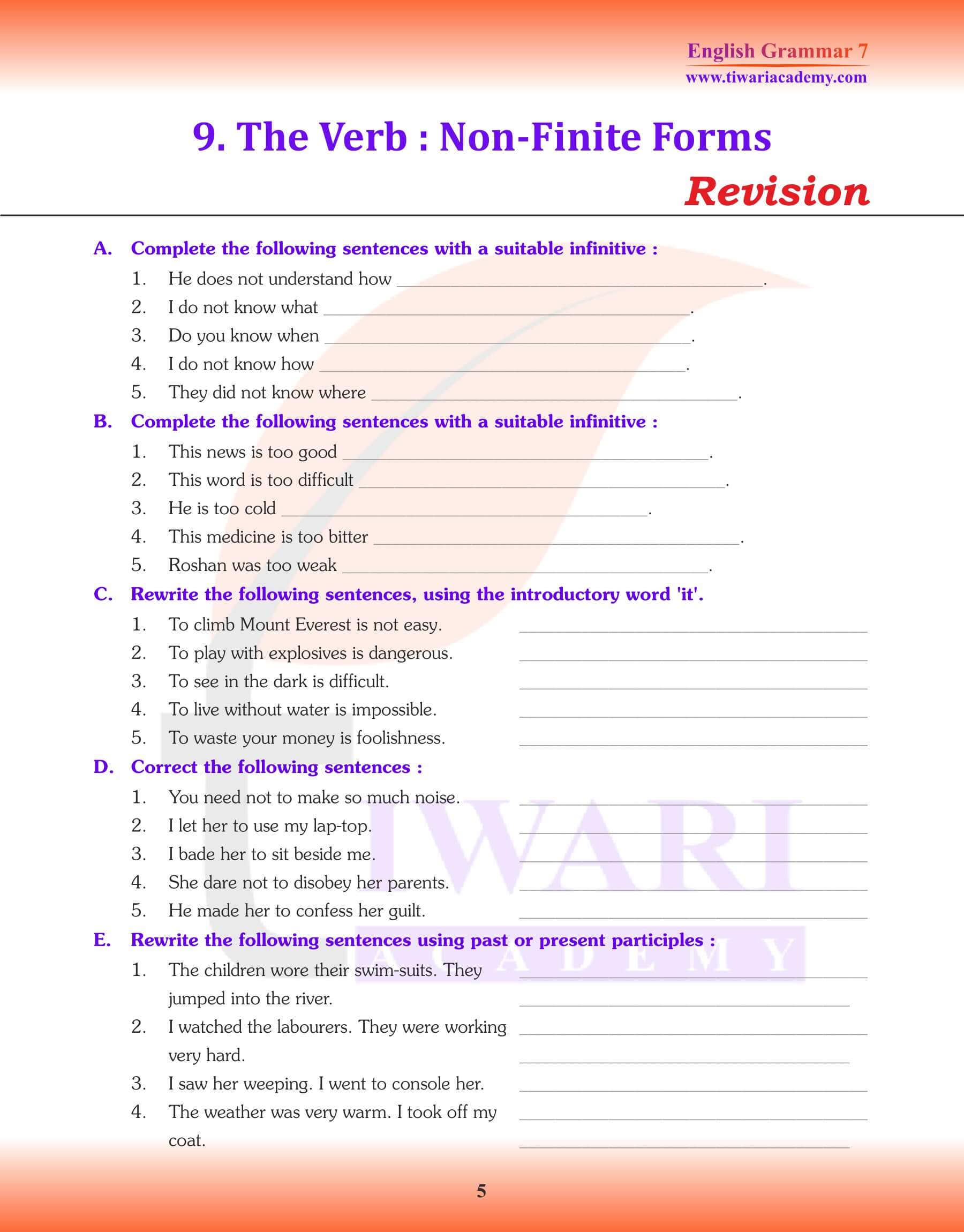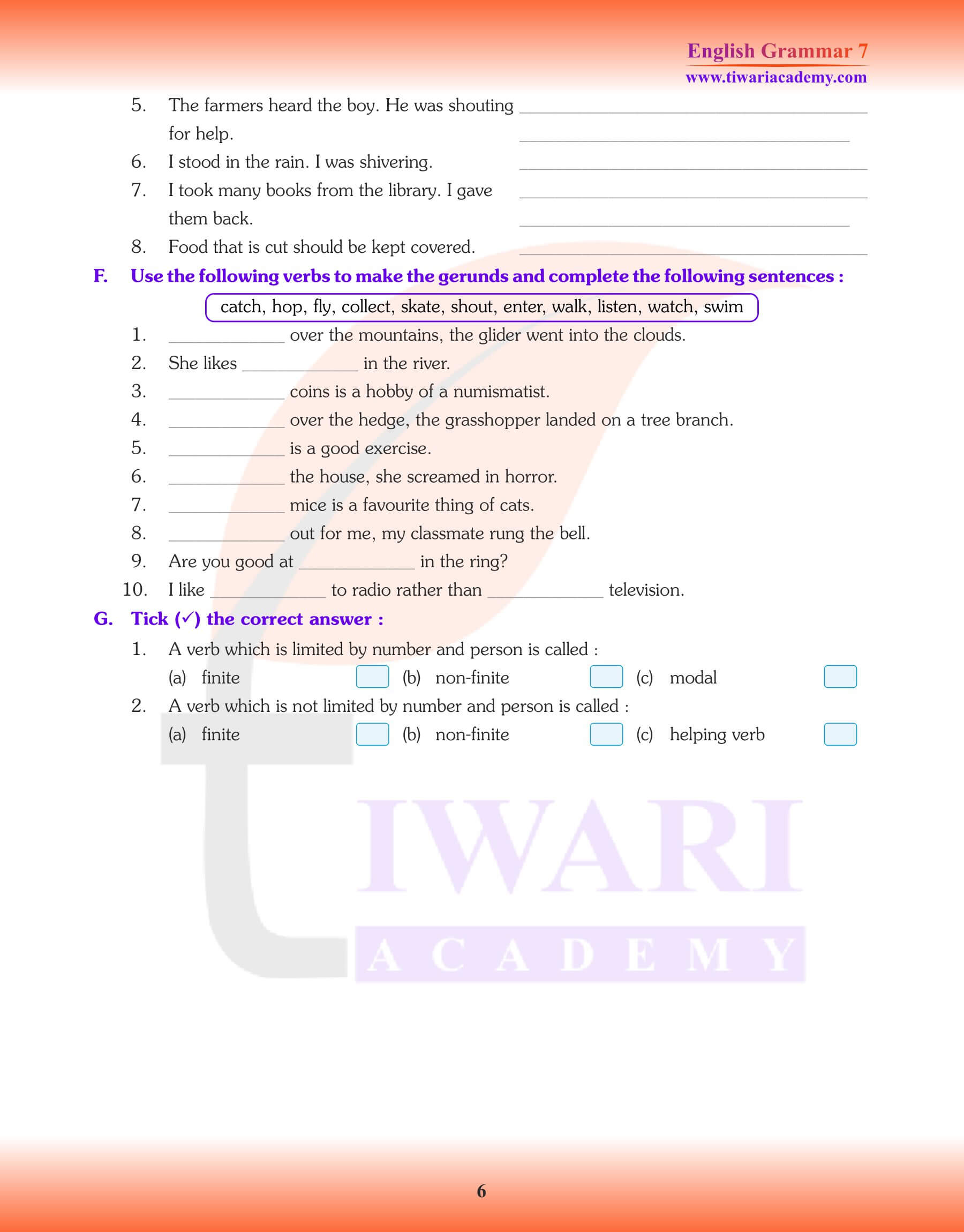Class 7 English Grammar Chapter 9 The Verb Non-Finite Forms. A Non-Finite Verb is a verb that is not limited by the rules of number, person, tense or voice. For example, To Sleep is necessary for health. (infinitive), Sleeping is necessary for health. (gerund), Sleeping patients should not be disturbed. (participle). Here, “to sleep” and “sleeping” are parts of verbs, but none of them has a subject. They are not limited by the rules of number, person, tense or voice. So, they are called Non Finite Verbs.
Class 7 English Grammar Chapter 9 The Verb Non-Finite Forms
Chapter 9 of Class 7 English Grammar introduces students to the captivating world of ‘Non-Finite Verbs’. Unlike their finite counterparts, non-finite verbs remain unconfined by conventional grammatical boundaries such as number, person, tense, or voice. An intriguing facet of English language, these verbs stand out due to their versatility and the unique roles they play in sentences. For instance, in the phrase “To Sleep is necessary for health”, “to sleep” operates as an infinitive, portraying an action without being bound to a specific subject or tense.
| Class: 7 | English Grammar |
| Chapter: 9 | The Verb Non-Finite Forms |
| Study Material: | Textbook and Revision Exercises |
| Academic Session: | 2025-26 |
Non-finite Verbs
Non-finite Verbs are of three types:
1. Infinitive
2. Gerund
3. Participle
An infinitive: is a non-finite verb that expresses an action. It is mostly preceded by the preposition to are not preceded by “to”. All infinitive such infinitive are known as “bow” infinitive. A gerund is a verb noun. It is a verb used as a noun, as objector object. A participle is a verb-adjective. It is a verb used as a participle, as a part of a subject or object. Participle is of three kinds:
- Present Participle (verb+ing)
- Past Participle (verb+ed)
- Perfect Participle (verb+ed/en)
Examples :
1. It is easy to dance on this stage. (Infinitive with “to”)
2. This an example bare infinitive. (Perfect Participle)
3. It is easy dancing on this stage. (Gerund)
4. A speeding scooter hit the old pedestrian. (Present Participle)
Furthermore, the chapter sheds light on different non-finite forms like gerunds and participles. Consider the example “Sleeping is necessary for health”, where “sleeping” acts as a gerund, or “Sleeping patients should not be disturbed”, where it becomes a participle. These instances underscore the fact that while these verb forms stem from action words, they aren’t anchored by traditional verb rules. Grasping the concept of non-finite verbs can significantly enhance students’ proficiency in framing complex and nuanced sentences.
THE INFINITIVE
The root form of the verb is called Infinitive. It is not limited by the number and person of
the subject. Such as be, have, go or sleep etc. It is often used with to before it.
Kinds of Infinitive: Infinitives are of two kinds:
(a) The Noun Infinitive (b) Gerundial Infinitive
The Noun Infinitive: The Noun Infinitive or Simple Infinitive is used
To sleep is good for health.
I like to play chess.
Gerundial Infinitive or Qualifying Infinitive
I have no horse to sell.
This book is good to read.
Infinitive Without “to” or “bare” Infinitive is Used:
I saw her dance.
You must help me do this sum.
But in passive voice to infinitive is used (to be + to infinitive) as,
She was seen to dance.
He was bidden to sing.
After Modals and some Auxiliary verbs (do, does, did) as,
I do not take tea.
You must leave this place.
After would rather, had better, had rather, rather than, sooner than, than, but as,
He would rather die than steal.
She could do nothing but weep.
THE GERUND
A Gerund is that form of verb which ends in “ing” and has the force of a Noun and a Verb. So, it is called a Verbal Noun.
Use of the Gerund
Subject of a Verb
Sleeping is necessary for health.
Object of a verb
Start marching ahead.
Object of a preposition
Children are fond of playing.
Complement of a verb
His weakness is drinking.
As case in Apposition
It is no use running after shadows.
PARTICIPLES
A participle is a non-finite verb-form that is used in compound forms of verbs or as an adjective. So, participles are called Verbal Adjectives also.
(a) Present Participle (b) Past Participle (c) Perfect Participle
(a) The Present Participle
Present Participle is formed by adding ‘ing’ to the first form of a verb. It is used:
For forming continuous Tenses
I am reading a novel.
As an Adjective
Barking dogs seldom bite.
As a complement of a subject after a verb
The exercise was tiring.
(b) The Past Participles
The Past Participle is another name of verb. It expresses a perfect action as an Adjective. It is always passive in form.
1. A burnt child dreads the fire. (as an adjective)
2. The patient left the hospital cured. (as an adverb)
(C) Perfect Participle
We use Perfect Participle to express that the first action is complete and the second action starts only after the completion of the first one; as,
1. Having fed the cow, he milked her.
2. The sun having risen, we returned home.
